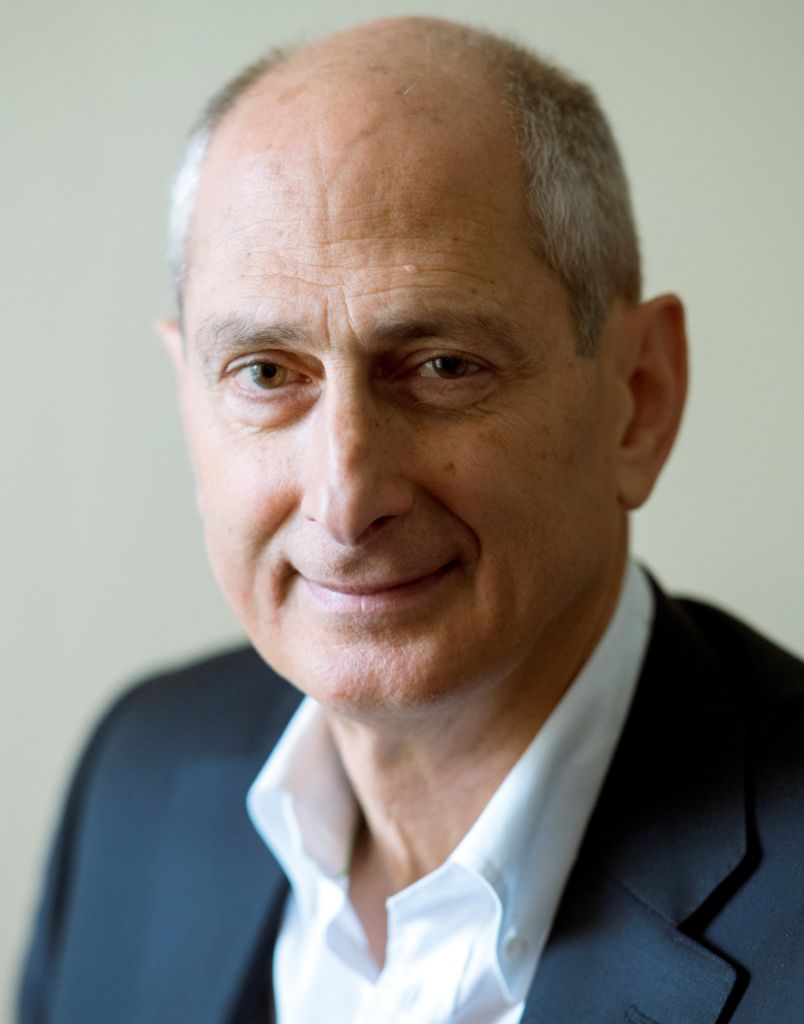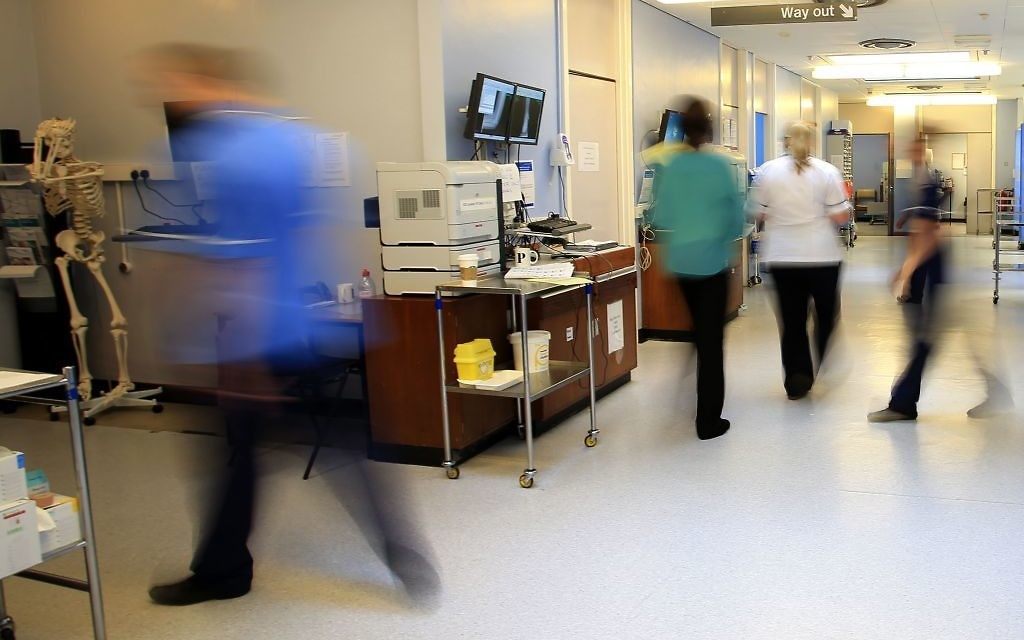Philanthropist David Dangoor: We’ll pipe Israeli health tech directly into the NHS
British Jewish businessman tells Jewish News why he's excited about the UK-Israel Health Initiative and using Israeli innovation in the NHS
A British Jewish philanthropist backing a new UK-Israel health hub has said he wants the two countries to head into the new healthcare revolution “hand-in-hand”.
David Dangoor, the businessman son of Sir Naim Dangoor, told Jewish News this week that the new accelerator would aim to match Israeli innovation in digital health with Britain’s cash-strapped NHS.
The UK Israel Dangoor Health Initiative will be launched in Israel at the official residence of the British Ambassador David Quarrey, together with the UK Israel Tech Hub, part of the British Embassy in Tel Aviv.
Get The Jewish News Daily Edition by email and never miss our top stories Free Sign Up
Backers say the aim is “to create a pipeline of Israeli digital health innovation into the NHS” by picking two or three of Israel’s best early stage digital health start-ups and giving them the tools, skills and knowledge to work with the UK”.
For the mild-mannered dynast, it is the latest way he can help make connections between the UK and Israel, “two very dynamic, inventive countries”. A decade ago, he sponsored a conference on renewable energy, bringing experts from Imperial College and the Weizmann Institute together.

That then expanded into health, first sponsoring the Anglo-Israel Cardiology Symposium, where top cardiologists from the UK and Israel travel to each other’s home countries to share learning, then sponsoring the British and Israeli Societies of Euro Gynaecology, which had their first meeting in London in November
In September, former Prime Minister Tony Blair opened in his father’s name the Centre for UK-Israel Relations in Mishkenot Sha’ananim in Jerusalem in buildings built by Sir Moses Montefiore in 1860, the first settlement of the New Yishuv.
“Montefiore was the inspiration for this UK-Israel theme that I’ve been following because he was very much a person who made a lot of connections between the UK and Israel at a completely different time,” says Dangoor.
“He would have been thrilled if he’d had the chance to do it with a real Israel. We are privileged to live in a time when we can do that, with an actual Israeli society and country.”
A businessman himself, Dangoor knows that life in a start-up is not easy, saying: “You need to find markets and quickly, because there’s competition.”
He’s thrilled that IBM is involved with the accelerator from the outset because he started his working life as a systems engineer at the IT giant before moving on to other things (“there were too many clever people for me”).
He says he hopes the accelerator will be mutually beneficial because “the NHS which is strapped for cash… New innovations and ways of doing things in a cheaper way can be of huge benefit to the whole population in this country”.
“…we are absolutely at the threshold of a healthcare revolution and I’m hoping that Israel and the UK will be at the forefront of that, hand in-hand…”
He may be a grandfather but Dangoor is right up-to-date with the latest technological changes set to revolutionise health, from the affordable sequencing of the human genome, to personalised medicine, to today’s computing power and data mining, to working with intelligent systems to better and quicker diagnose problems.
He’s excited by it and sees it in context. “It was 200 years ago that the industrial revolution really got going, and everything around us now is a result of that,” he says. “Now we are in the midst of a bio-health revolution with very similar parameters”
Israel is in a supreme position to take advantage and carve a lead in this, he says, because of the quality of health records it has kept since its birth, in part because of its system of health insurance.
“All that data is now being mined, information that was sitting there, we now have the capacity to digest and understand it,” he says, visibly excited by the prospects.
“With all this new computer power and greater understanding and the breakthrough in genetics, we are absolutely at the threshold of a healthcare revolution and I’m hoping that Israel and the UK will be at the forefront of that, hand in-hand.”
What is it about Israel that makes it so good at breaking new ground in these areas, we wonder. “In part Israel became good at technology because it has had to defend itself,” he says. “Sometimes this means rockets to protect you, but it can also mean understanding to make the world a better place.”
He loves the logo of the Weizmann Institute – “science for the benefit of humanity” – and says it’s no surprise Israel excels, given the nature of Jews as a people.
“Jewish people have always been curious,” he says, recalling how his non-Jewish headmaster used to say assemblies at his Jewish school were “never quiet”. Dangoor says Jews “ask questions all the time. We’re not regimented. We ask why, why does it work that way. It’s an ethos, a curiosity”.
He also gives credit to “the great founders of Israel” like Chaim Weizmann and David Ben-Gurion who he says laid foundations for technology before they were bought weapons.
“They believed that would be Israel’s ticket to rapid self-sufficiency, and I think they’ve been proved right. We’re harvesting the fruits of their vision and foresight 80 or 90 years ago – decades before the State was founded.”
Dr Samuel Cronin, healthcare innovation manager at UK Israel Tech Hub, said Israeli innovation in healthcare is “outstanding” and “aligns neatly with the NHS, a tremendous British asset that brings great pride to Brits around the world”.

Thank you for helping to make Jewish News the leading source of news and opinion for the UK Jewish community. Today we're asking for your invaluable help to continue putting our community first in everything we do.
For as little as £5 a month you can help sustain the vital work we do in celebrating and standing up for Jewish life in Britain.
Jewish News holds our community together and keeps us connected. Like a synagogue, it’s where people turn to feel part of something bigger. It also proudly shows the rest of Britain the vibrancy and rich culture of modern Jewish life.
You can make a quick and easy one-off or monthly contribution of £5, £10, £20 or any other sum you’re comfortable with.
100% of your donation will help us continue celebrating our community, in all its dynamic diversity...
Engaging
Being a community platform means so much more than producing a newspaper and website. One of our proudest roles is media partnering with our invaluable charities to amplify the outstanding work they do to help us all.
Celebrating
There’s no shortage of oys in the world but Jewish News takes every opportunity to celebrate the joys too, through projects like Night of Heroes, 40 Under 40 and other compelling countdowns that make the community kvell with pride.
Pioneering
In the first collaboration between media outlets from different faiths, Jewish News worked with British Muslim TV and Church Times to produce a list of young activists leading the way on interfaith understanding.
Campaigning
Royal Mail issued a stamp honouring Holocaust hero Sir Nicholas Winton after a Jewish News campaign attracted more than 100,000 backers. Jewish Newsalso produces special editions of the paper highlighting pressing issues including mental health and Holocaust remembrance.
Easy access
In an age when news is readily accessible, Jewish News provides high-quality content free online and offline, removing any financial barriers to connecting people.
Voice of our community to wider society
The Jewish News team regularly appears on TV, radio and on the pages of the national press to comment on stories about the Jewish community. Easy access to the paper on the streets of London also means Jewish News provides an invaluable window into the community for the country at large.
We hope you agree all this is worth preserving.
- Features
- David Dangoor
- UK-Israel relations
- Israel-UK relations
- Sir Naim Dangoor
- NHS
- National Health Service
- British embassy in Tel Aviv
- British Ambassador David Quarrey
- UK Israel Tech Hub
- Weitzmann Institute
- Imperial College
- former Prime Minister Tony Blai
- Tony Blair
- Mishkenot Sha’ananim
- Sir Moses Montefiore
- ibm
- healthcare
- Israeli medicine
- News
- Israel News
- Health and Beauty
-
By Laurent Vaughan - Senior Associate (Bishop & Sewell Solicitors)
-
By Laurent Vaughan - Senior Associate (Bishop & Sewell Solicitors)
-
By Laurent Vaughan - Senior Associate (Bishop & Sewell Solicitors)
-
By Laurent Vaughan - Senior Associate (Bishop & Sewell Solicitors)






















